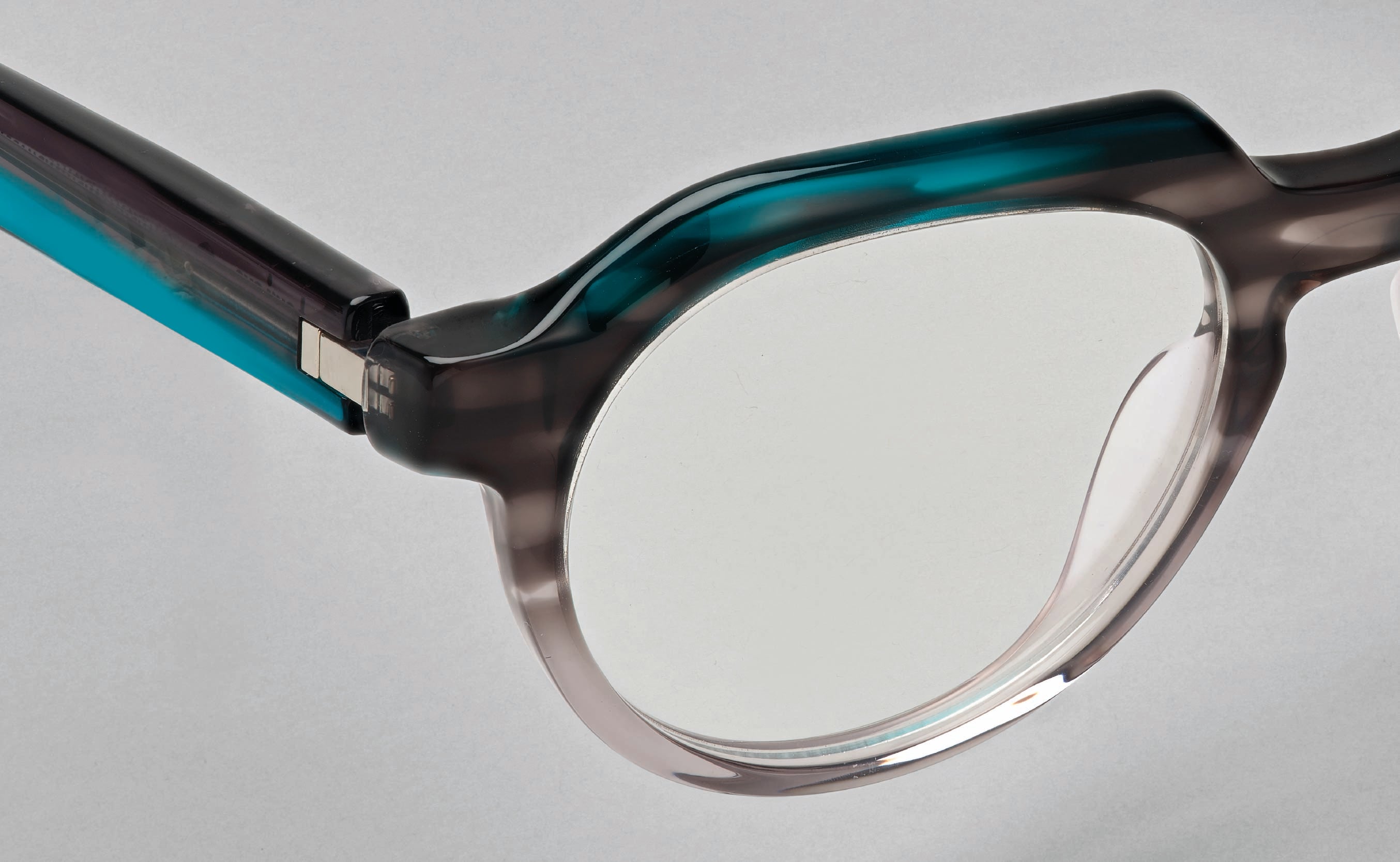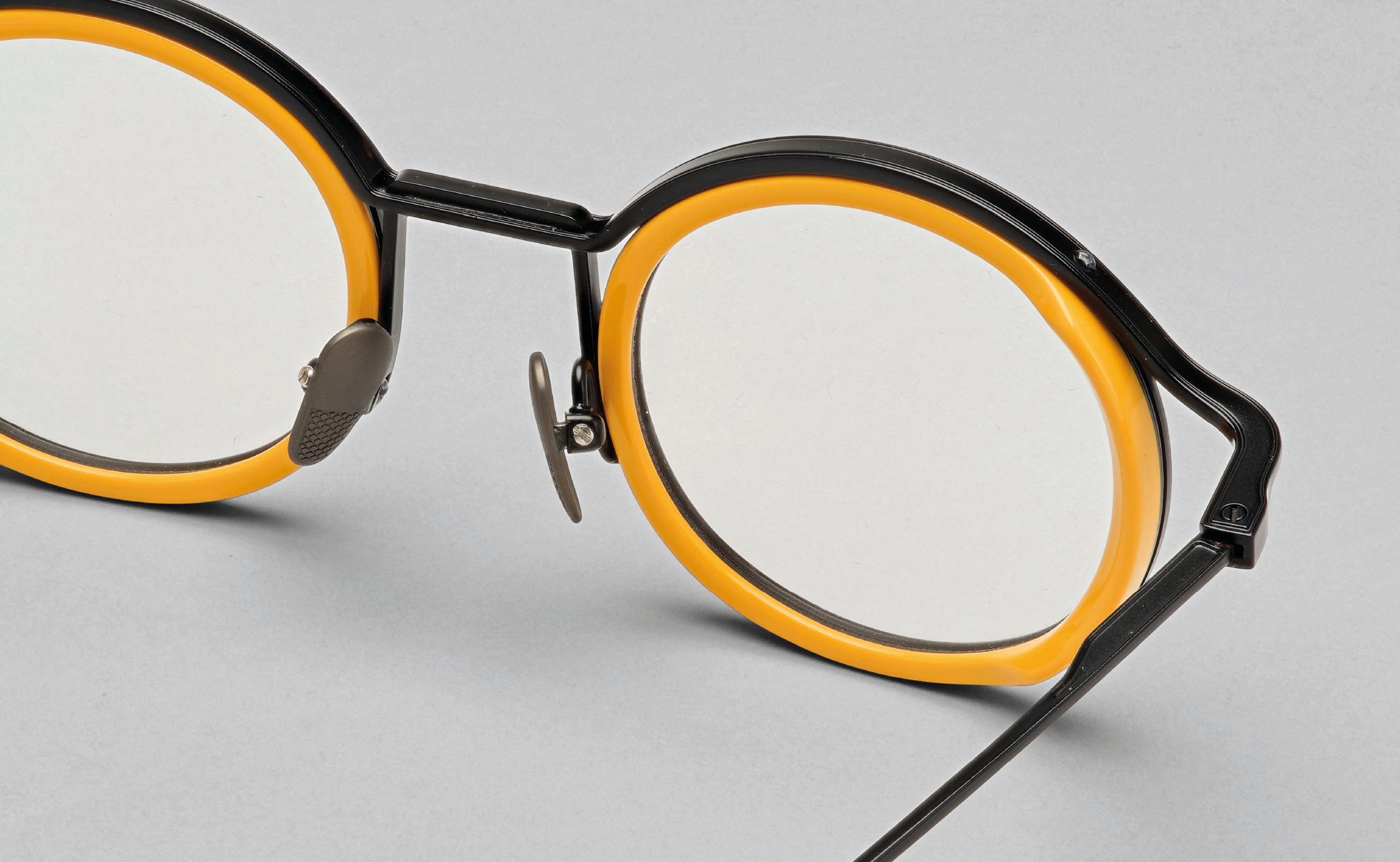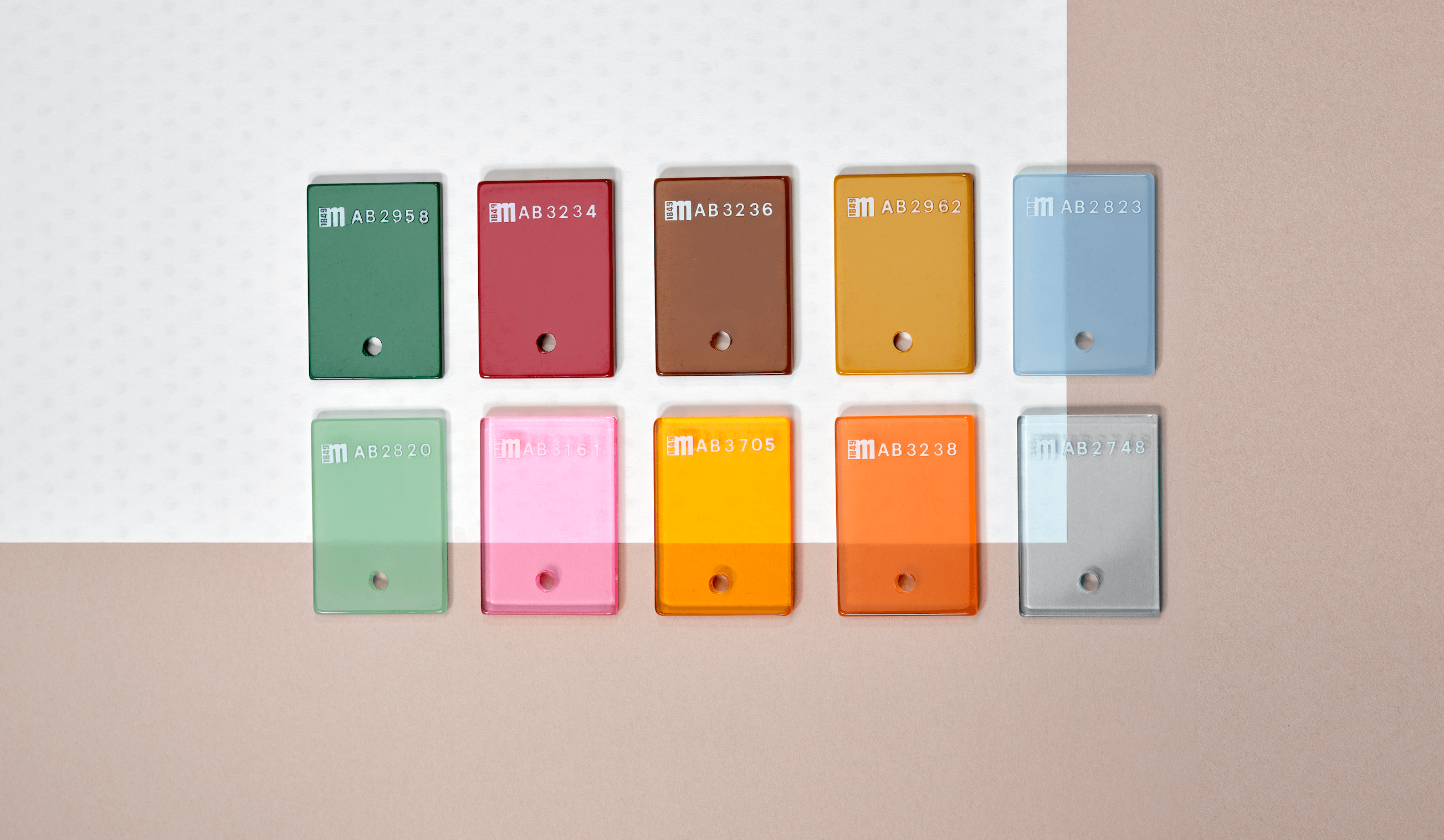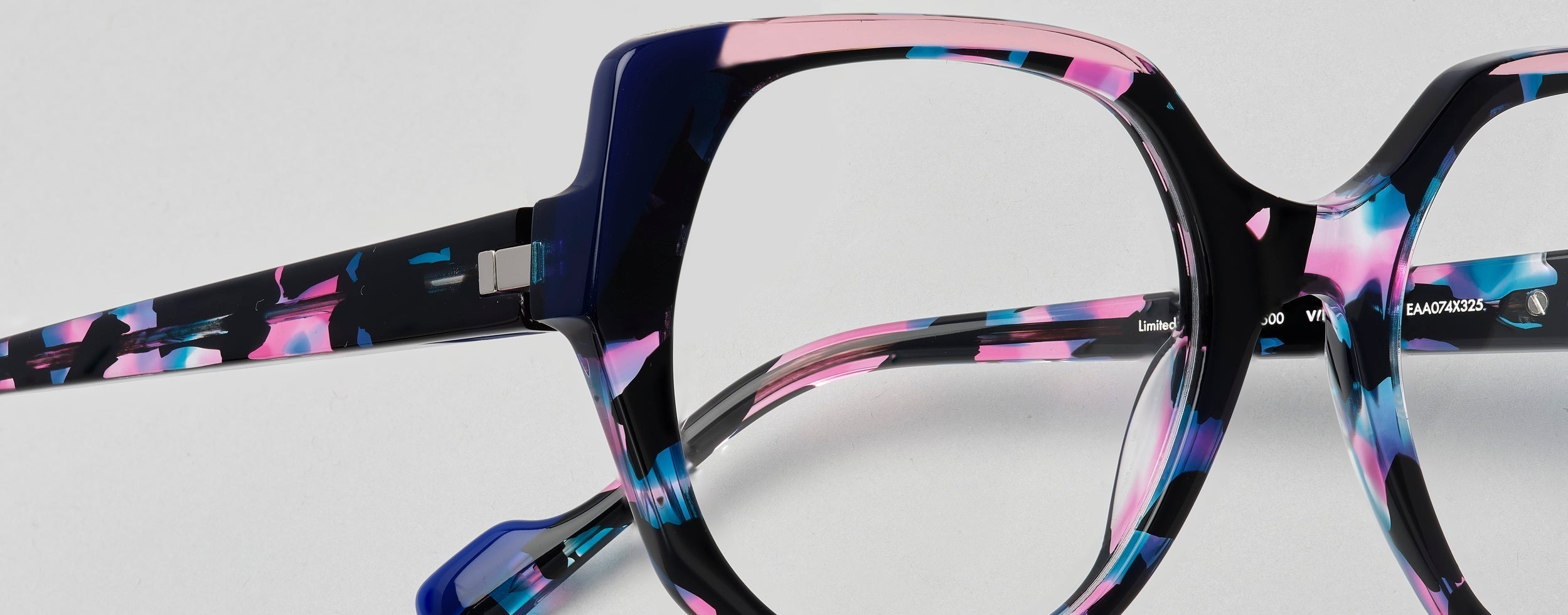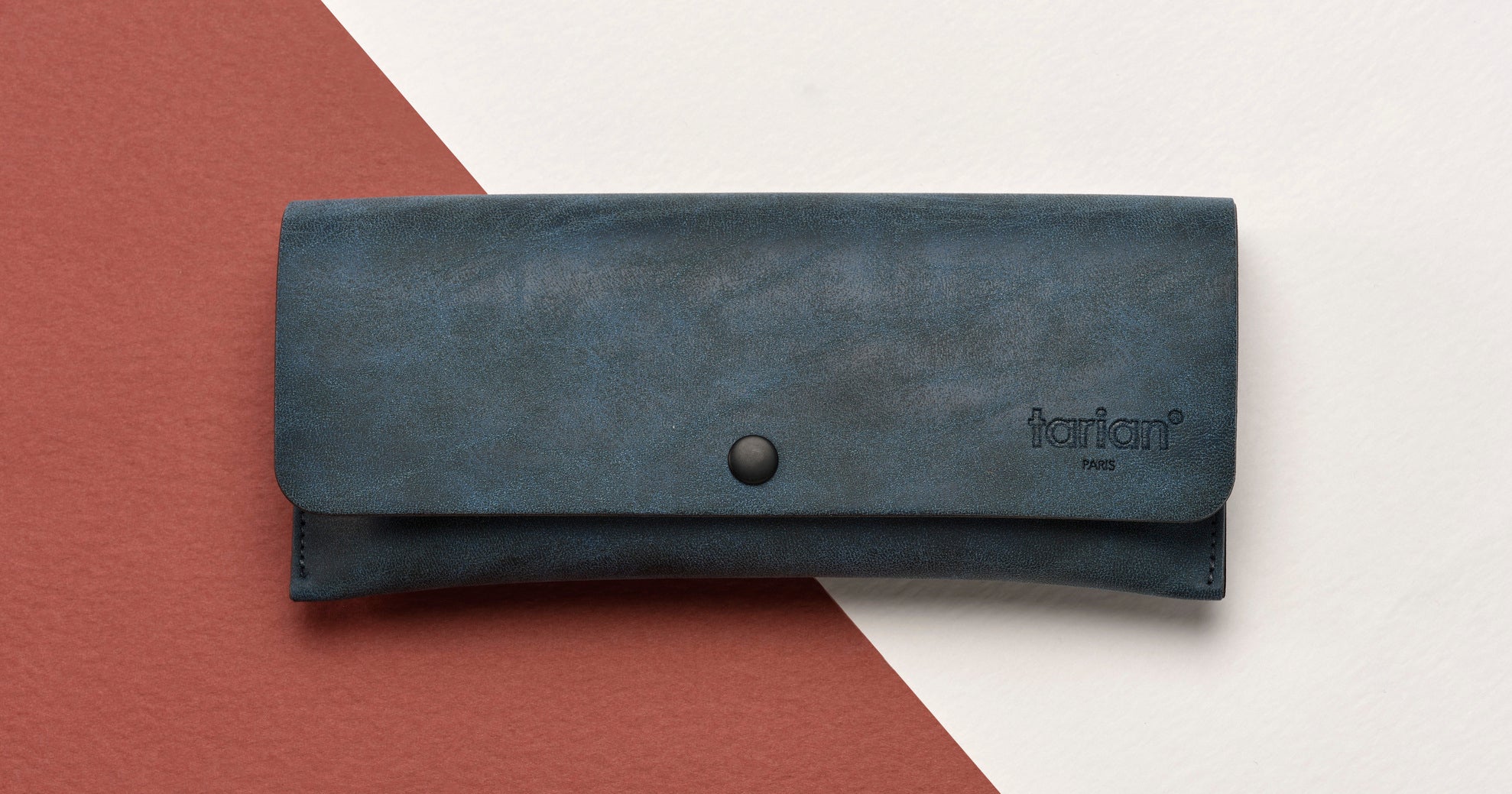
How to Care for Your Acetate Glasses: Tips and Tricks
Imagine your glasses as your trusty sidekick, always there to not only help you see the world more clearly but also to tell a story about who you are. Acetate glasses are like chameleons, adapting to your style, mood, and the tales you want to tell. They're not just frames; they're fragments of your personality, painted in the colours you choose. Among the various materials used for frames, acetate stands out for its versatility, durability, and aesthetic appeal. This article aims to be your go-to guide for maintaining the beauty and functionality of your acetate frames. Let's get into the specifics of why acetate frames require special attention and how you can keep them in pristine condition.
Advantages of Acetate Glasses
Acetate glasses are the rebels of the eyewear world. They refuse to conform, offering you a canvas to express your individuality. They're tough cookies, too, standing up to life's knocks and bumps. And let's talk about comfort – these frames are so light, you'll forget they're perched on your nose, leaving you free to conquer your day.

Durability and Long-lasting Quality
One of the key advantages of acetate glasses is their durability. Acetate frames are known for their strength and resistance to impact, making them less likely to break or deform compared to other materials. With proper care, acetate glasses can last for many years, providing you with long-lasting eyewear. If you're interested in the environmentally friendly aspects of acetate, we suggest you read this comprehensive article.
Lightweight and Comfortable to Wear
Acetate is a lightweight material, which means that acetate glasses are comfortable to wear for extended periods. Unlike heavier materials like metal, acetate frames do not put unnecessary pressure on your nose or ears, reducing the likelihood of discomfort or headaches.
Versatile Designs for Various Face Shapes and Styles
Another advantage of acetate glasses is their versatility in design. Acetate frames come in various shapes and sizes, making it easier to find a pair that complements your face shape and personal style. Whether you have a round, square, oval, or heart-shaped face, there is an acetate frame that can enhance your features and highlight your unique facial structure.

Why Acetate Frames Need Special Care
Acetate is like the sensitive artist of the materials world – it's unique, colourful, and needs a gentle touch. It's not high-maintenance, but it does ask for a bit of TLC to keep it looking its best. Think of it as the cashmere sweater of eyewear – treat it right, and it'll stay by your side for years.
Material Properties
Acetate is a plant-based plastic derived from cotton or wood pulp, making it both renewable and biodegradable. It's known for its rich colours, versatility, and comfort. Unlike injection-molded plastic, acetate frames are crafted from sheets, providing a greater depth of colour. The material is also hypoallergenic, making it a great choice for those with sensitive skin. However, its unique composition also means it has specific care requirements to maintain its luster and shape.
Common Issues
Improper care can lead to several problems such as warping, discolouration, and a general loss of form. Exposure to high temperatures can deform the frames, while certain chemicals can strip away the vibrant colours. Understanding these vulnerabilities is the first step in effective long-term care.
Daily Maintenance Tips
Handling your glasses with care is like cradling a butterfly – it's all about being gentle and protective. And when they're not on your face, give them a cozy home. A sturdy case is their sanctuary, keeping them safe from the chaos of the outside world.
Handling with Care
Your glasses are more than just a vision aid; they're a part of your daily look. So, handle them as you would any favourite accessory—with a gentle touch. When you put them on or take them off, use both hands. This keeps them straight and comfy, just how they should be.
The Cleaning Routine
Cleaning your glasses is as simple as a quick rinse under lukewarm water. This gets rid of any dust and grime from the day. A tiny bit of mild soap and your fingers are all you need to get rid of fingerprints and spots. Just rub gently, rinse again, and then dry them off with a soft cloth. Think of it like wiping down your favourite screen – you want it clean and clear without any scratches.
What to Avoid:
- Keep your glasses away from heat; it can bend and twist them out of shape.
- Stay clear of harsh cleaners like acetone or alcohol; they can strip away the colour.
- Be smooth and steady when you clean them; rough handling can cause damage.
- Don't let them bake in the sun; it's not good for the material.
- Don't leave them wet; dry them off to keep them in tip-top shape.
- Go easy on the water and cleaning liquids; a little goes a long way.
- Don't let dirt build up; a quick clean can keep them looking sharp.
Storing Your Glasses
When you're not wearing your glasses, pop them in their case. It's like their own little room that keeps them safe from scratches and dust. Keep the case in a cool, dry spot where the sun and heat can't mess with them. And make sure they're not under anything heavy; you don't want them getting squished.

Long-Term Care Strategies for Acetate Glasses
Your glasses are in it for the long haul, so give them the occasional check-up. Tighten their screws, give them a professional spa day with adjustments, and they'll stay loyal to you, sitting perfectly on your nose, day in and day out.
Periodic Tightening
Over time, the screws in your frames may loosen. Periodically check these and tighten them with a small eyeglass screwdriver. However, be careful not to over-tighten as this can strain the acetate.
Professional Adjustments
If you notice that your frames are misaligned or have been bent out of shape, it's best to seek professional help. Most optical shops offer adjustments free of charge or for a little fee.
Lens Care
Taking care of the lenses is just as important as the frames. Always use a lens cleaner that is compatible with both your lenses and acetate frames. Avoid using rough materials like paper towels to clean the lenses as they can leave scratches.
What to Avoid to Make your Glasses Last Longer
Harmful Chemicals
Your acetate frames are not just a functional item; they're a piece of wearable art. To ensure their longevity, shield them from the harsh world of chemicals. Acetone, alcohol, and even your favourite hair spray can be like acid rain on a statue, slowly eroding the vibrancy and integrity of the material. These substances can strip away the sheen, leaving your frames a shadow of their former glory. Treat your glasses like a treasured painting in a gallery, protected from the elements that could mar its beauty.
Environmental Factors
Think of your glasses as botanicals in a garden; they thrive in a controlled environment. Excessive heat acts like a midday sun that can wilt the sturdiest of leaves, causing your frames to twist and turn in ways they were never meant to. Humidity, too, can seep into the core of acetate, fogging up the clear lines and vibrant colours that define your eyewear's character. To prevent this, store your glasses as you would a rare book, in a cool, dry place where the temperature is constant and the air is clear. Shield them from the sun's direct glare as sun's rays are as unforgiving to acetate as they are to delicate skin.
By being mindful of these environmental and chemical hazards, you can preserve the pristine condition of your glasses. This vigilance ensures that your eyewear remains a faithful accessory in your fashion repertoire, ready to showcase your style with clarity and colour day after day.
Troubleshooting Common Problems
Sometimes, despite your best efforts, your frames might face challenges. Warping and discolouration are just two of the dragons to be slain, but fear not – with the right care and a trusty optician, your frames can be saved and live to see another day. Here’s a guide to help you troubleshoot some common problems:
- Warping: Acetate frames are sensitive to heat. If they've warped due to high temperatures, a professional optician can often re-adjust them to their original form. To prevent warping, avoid leaving your glasses in hot environments, such as a car on a sunny day or near a heat source.
- Discolouration: Prolonged exposure to sunlight or harsh chemicals can cause the vibrant colours of your acetate frames to fade. Store your glasses in a protective case and clean them with products designed for acetate material to prevent discolouration.
- Scratches: While acetate is a durable material, the lenses and sometimes the frames can get scratched if mishandled. Protect your glasses by storing them in a padded case and using a microfibre cloth for cleaning. If scratches occur, an optician can sometimes buff out minor abrasions.
- Loose Fit: Over time, your glasses may begin to feel loose. This can be due to the natural flexibility of acetate or the loosening of screws. Regular adjustments by a professional can ensure a perfect fit and prevent the frames from becoming misshapen.
- Stress Fractures: Acetate frames can develop small cracks if they're subjected to stress or bent beyond their capacity. Handle your glasses gently and never force them into a tight space.
- Nose Pad Marks: If your glasses have nose pads, they can leave marks on the acetate frame over time. To avoid this, ensure that the nose pads are regularly adjusted so they don't press too hard against the frame.
- Chemical Reactions: Certain cosmetics, hair products, and cleaning agents can react with the acetate, leading to deterioration. Keep your frames away from these substances, and if they come into contact, clean them immediately with a safe cleaner.
- Screw Loosening: The screws on your acetate frames can loosen, causing the arms to feel wobbly. Check the screws periodically and tighten them with a suitable eyeglass repair kit.
- Hinge Stiffness: The hinges on acetate frames can become stiff, making it difficult to open and close the arms. A tiny drop of lubricant designed for eyeglasses can resolve this issue.
- Allergic Reactions: Although rare, some individuals may develop an allergic reaction to the material. If you experience discomfort, consult with your optician for alternatives.
By being aware of these common issues and knowing how to address them, you can ensure that your acetate glasses remain in excellent condition, providing you with both optimal vision and a stylish accessory for your daily wear.
If you like acetate frames, check also our article about rPET frames!

Caring for your acetate glasses is about writing your own story with a happy ending. It's about making sure that the frames you fell in love with continue to showcase the essence of who you are. With the right care, they won't just be a part of your adventures; they'll help you see them more vividly.

